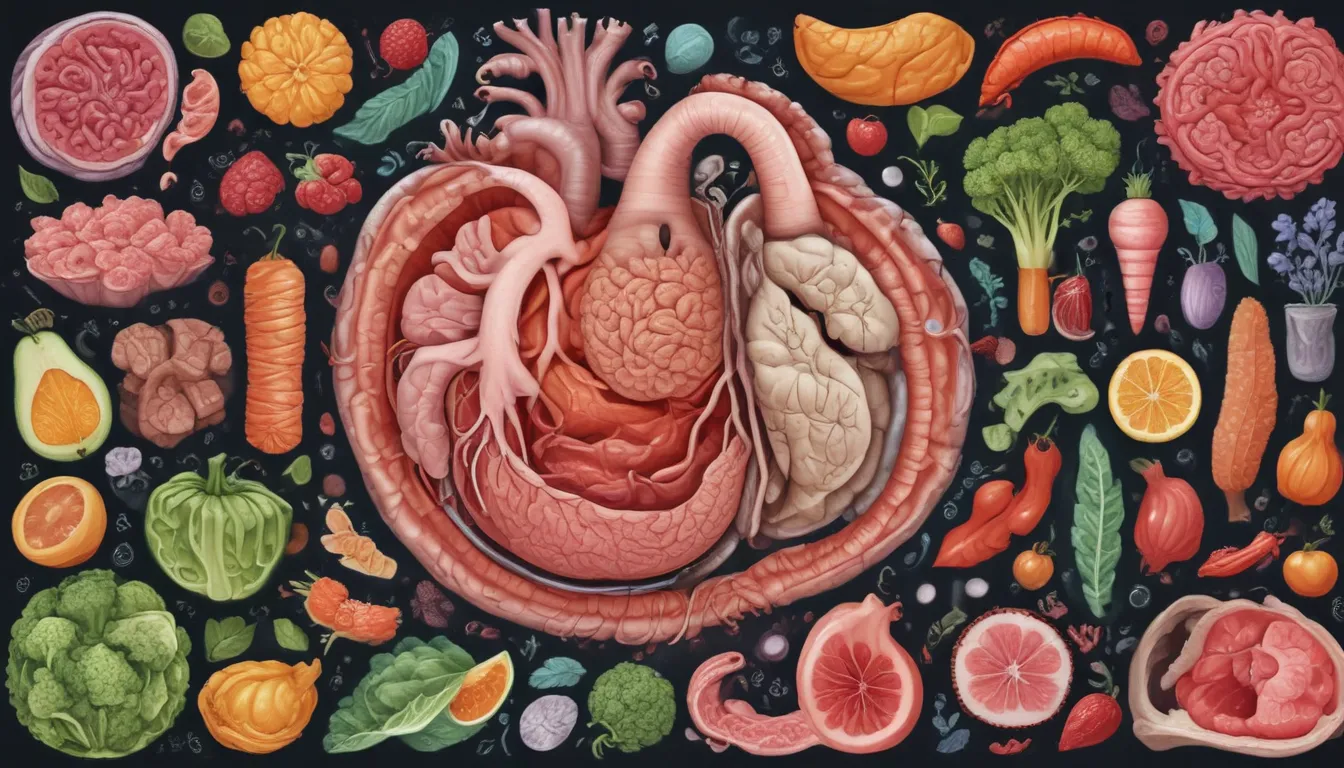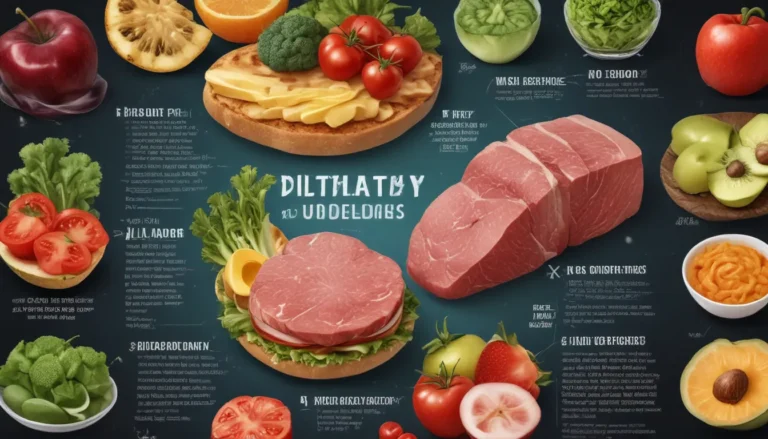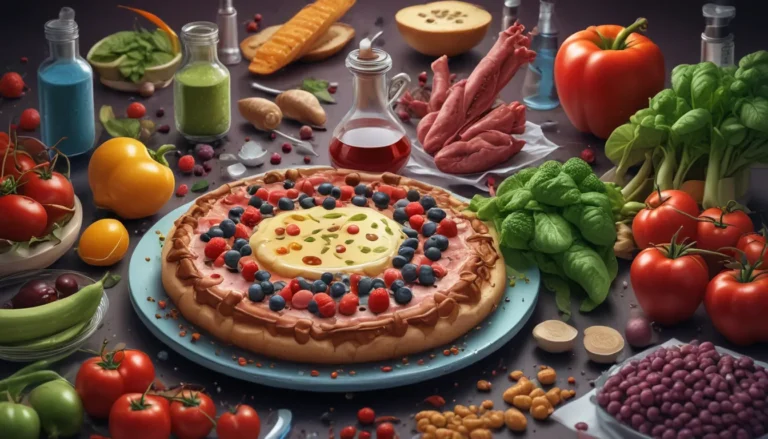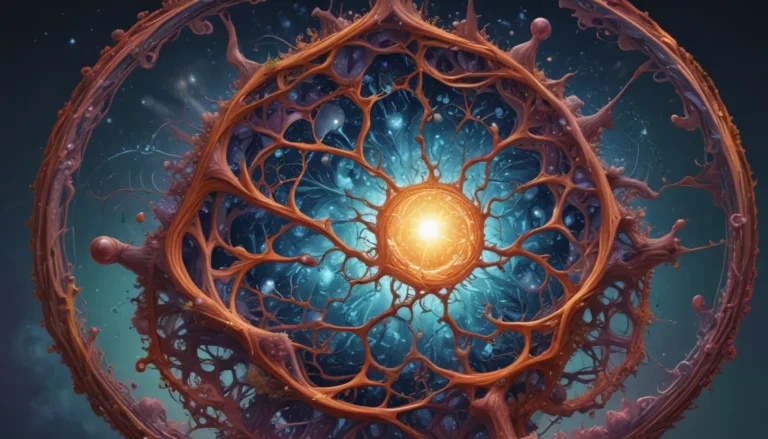A Note About Images: The images used in our articles are for illustration purposes only and may not exactly match the content. They are meant to engage readers, but the text should be relied upon for accurate information.
Have you ever stopped to marvel at the intricate processes that occur in your body every time you eat? Digestion and absorption are essential functions that allow us to extract nutrients from food and convert them into energy for growth and repair. While these processes may seem automatic, they are, in fact, incredibly complex and fascinating.
In this article, we will uncover 18 astounding facts about digestion and absorption, shedding light on the incredible mechanisms that our bodies utilize to turn food into usable fuel. From the initial breakdown of food in your mouth to the absorption of nutrients in your small intestine, get ready to be amazed by the inner workings of your digestive system.
Whether you’re a biology enthusiast, a student studying human physiology, or simply curious about how your body functions, this article will provide valuable insights into the significance of digestion and absorption in maintaining a healthy and functional system.
The Intriguing Journey of Digestion and Absorption
Digestion is a multi-step process that begins the moment food enters your mouth and ends with the absorption of nutrients into your bloodstream. Here are some key facts that highlight the complexity and importance of digestion and absorption:
Digestion Begins in Your Mouth
One of the most surprising facts about digestion is that it actually starts in your mouth. When you take a bite of food, your saliva contains enzymes that begin breaking down carbohydrates, setting the stage for further digestion.
The Stomach’s Power of Acidity
The stomach is a powerhouse of acidity, with a pH level of around 1. This high acidity not only aids in breaking down food further but also serves as a defense mechanism by killing harmful bacteria present in the food.
The Small Intestine: The Hub of Nutrient Absorption
The small intestine is the primary site where most of the magic of absorption occurs. Its extensive surface area and specialized cells work together to efficiently absorb nutrients into the bloodstream for utilization by the body.
The Liver’s Role in Digestion
Beyond bile production, the liver plays a crucial role in metabolism, detoxification, and nutrient storage. It is a key player in ensuring that the nutrients from food are processed and distributed throughout the body.
Supporting Your Digestive Health
Maintaining a healthy digestive system is vital for overall well-being. Here are some essential tips and insights to support your digestion and optimize the absorption of nutrients:
- Fiber, Water, and Gut Bacteria: These three components are essential for good digestion. Fiber promotes bowel regularity, water helps soften stools and prevent constipation, and gut bacteria aid in fermentation and vitamin production.
- Chewing Thoroughly: Taking the time to chew your food properly allows for easier digestion and absorption, reducing the risk of indigestion and bloating.
- Managing Stress: Stress can disrupt the normal functioning of the digestive system, leading to various symptoms. Practicing stress management techniques can help maintain a healthy digestive process.
The Role of Enzymes in Digestion
Enzymes are critical players in the digestion process, accelerating chemical reactions that break down complex molecules into simpler forms. Here are some key points about enzymes in digestion:
- Amylase: Breaks down carbohydrates into sugars for absorption.
- Lipase: Aids in the digestion of fats.
- Protease: Facilitates the breakdown of proteins into amino acids for utilization.
FAQs: Unraveling Common Questions
Here are some frequently asked questions about digestion and absorption:
Q: What is digestion?
A: Digestion is the process by which the body breaks down food into smaller molecules for absorption and utilization by cells.
Q: How long does digestion take?
A: On average, digestion can take anywhere from 24 to 72 hours, depending on the type of food consumed and individual metabolism.
Q: Can stress affect digestion?
A: Yes, stress can have a significant impact on digestion, leading to symptoms like indigestion, stomachaches, and constipation.
Q: How can I improve digestion?
A: Eating a balanced diet rich in fiber, staying hydrated, exercising regularly, managing stress, and avoiding processed foods can help improve digestion.
Conclusion: Celebrating the Marvels of Digestion and Absorption
In conclusion, the process of digestion and absorption is a remarkable feat of biology. From the initial breakdown of food in your mouth to the final absorption of nutrients into your bloodstream, numerous intricate mechanisms work together to ensure optimal digestion and nutrient assimilation. By understanding the importance of a healthy digestive system and adopting good eating habits, you can support your digestion and ensure the efficient absorption of nutrients.
As you sit down for your next meal, take a moment to appreciate the incredible journey your food undergoes. From the taste buds on your tongue triggering the release of digestive enzymes to the absorption of nutrients in your small intestine, digestion is truly a fascinating process that keeps your body running smoothly.
Remember, your digestive system is a complex and efficient machine that deserves attention and care. By nourishing your body with nutrient-rich foods, staying hydrated, and managing stress, you can promote optimal digestion and overall wellness.
If you enjoyed learning about digestion and absorption, consider exploring more about the pyloric sphincter, additional enigmatic facts about the digestive system, or how the best mass gainers can support your digestive health and muscle-building goals.
Was This Article Helpful?
Trust in our commitment to delivering trustworthy and engaging content is essential to us. Each fact shared on our platform is contributed by real users like you, ensuring a diverse range of insights and information. Our dedicated editors meticulously review each submission to guarantee the highest standards of accuracy and reliability. Explore and learn with us, knowing that the facts we provide are not only fascinating but also credible.






